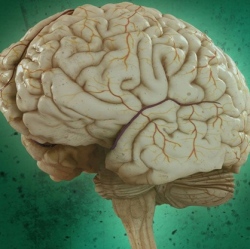
The brain may be able to compensate for some of the early changes seen in Alzheimer’s disease, research shows. The study suggests some people recruit extra nerve power to help maintain their ability to think. Scientists hope the findings could shed light on why only some people with early signs of the condition go on to develop severe memory decline.
But experts warn much more research is needed to understand these processes. The study, led by researchers at the University of California, involved 71 adults with no signs of mental decline. Brain scans showed 16 of the older subjects had amyloid deposits – tangles of protein that are considered a hallmark of Alzheimer’s disease.
All participants were asked to memorise a series of pictures in detail while scanners were used to track their brain activity. They were then asked to recall the gist and later the detail of all the pictures they had seen.
